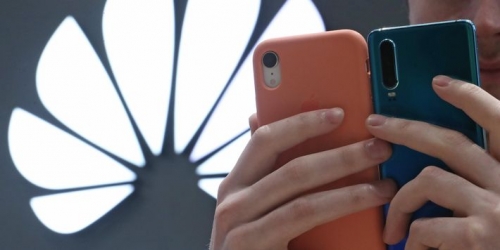News And PoliticsCommunications And EntertainmentSports And FitnessHealth And LifestyleOthersGeneralWorldnewsBusiness And MoneyNigerianewsRelationship And MarriageStories And PoemsArts And EducationScience And TechnologyCelebrityEntertainmentMotivationalsReligion And PrinciplesNewsFood And KitchenHealthPersonal Care And BeautySportsBusinessFamily And HolidaysStoriesIT And Computer ScienceRelationshipsLawLifestyleComedyReligionLifetipsEducationMotivationAgriculturePoliticsAnnouncementUSMLE And MedicalsMoneyEngineeringPoemsSocial SciencesHistoryFoodGive AidBeautyMarriageQuestions And AnswersHobbies And HandiworksVehicles And MobilityTechnologyFamilyPrinciplesNatureQuotesFashionAdvertisementChildrenKitchenGive HelpArtsWomenSpiritualityQuestions AnsweredAnimalsHerbal MedicineSciencePersonal CareFitnessTravelSecurityOpinionMedicineHome RemedyMenReviewsHobbiesGiveawayHolidaysUsmleVehiclesHandiworksHalloweenQ&A
Top Recent
Loading...
Huawei's Global Sales May Skyrocket, Since They Found A Perfect Alternative To Google Playstore
6 years ago
~8.3 mins read
Huawei is now in a race against time. Until last Friday, its mission was to keep government and enterprise users—as well 650 million active smartphone users—loyal to the brand while it fought the U.S. blacklist. Until last Friday, despite shrinking sales overseas—primarily due to the loss of Google, the company continued to post decent financials based on its performance at home.
All flagship phones will be hit by Taiwan’s TSMC cutting off supplies—those sold at home and overseas. The key beneficiaries—somewhat ironically—may well be other Chinese smartphone vendors able to replicate Huawei’s successful recipe.
And then last week hit. The U.S. celebrated the blacklist’s first anniversary by exponentially increasing the stakes, changing everything for Huawei.
Ad
Despite all this, Huawei has suddenly unveiled a surprise alternative to Google’s search and Play Store, a defiant move against both the blacklist and Google, another targeted attempt to offer a viable full-fat Android and Play Store alternative.
Huawei and its supporters in Beijing have around 12-months to find a compromise with Washington or a workable replacement for that silicon supply chain—after that, stockpiles will diminish. Huawei is taking the view that a compromise or workaround can and must be found. The alternative is too drastic to contemplate. This time, the use of the word “survival” is not melodramatic.
And so to the company’s hastily rejigged HAS2020—its global analyst conference. There’s little surprise that, as management recoils from the shockwave of the latest U.S.
beating, there has also been business as usual talk of new tech and impressive innovation stemming from the 15% of sales it commits to R&D. And, of course, the continuing search for those elusive Google gap-fillers.
Ad
Piece by piece, we have seen Huawei build an ecosystem that it sees as a third-way alternative to Google’s full-fat Android and iOS. Last year, hopes were pinned on the most radical possible option, an entirely new, ground-up OS—but that was soon watered down into an expansion of the open-source version of Android that Huawei will not lose. What we did see, though, was a huge acceleration of Huawei Mobile Services (HMS), a swap-out for Google’s GMS, and the app ecosystem to go with it.
In recent weeks, we have seen a trail of confirmations around replacements for Google apps—like maps, and a revamped AppGallery to replace the Play Store. We have even seen Huawei talk up app security measures as a differentiator to Google, which has had issues with screening the millions of apps now on Play Store.
Back in March, just ahead of the P40 launch, I reported on pilot testing of two new Huawei apps, “Search” and “AppSearch,” both intended as replacements for Google functionality on Huawei phones. The first to replace core search itself—a major money-spinner for Google, the second to make it easy for users to search for and install popular apps, either from Huawei’s AppGallery or third-party stores.
Both these apps had their issues.
The use of a Chinese search engine, subject to Beijing’s influence if not laws outside China, is clearly an issue. We have seen reports of how other such platforms might be subject to interference. We have also seen reports about China’s efforts to control the messages received overseas, and with its close ties to Huawei many will fear the worst.
Ad
Loading...



